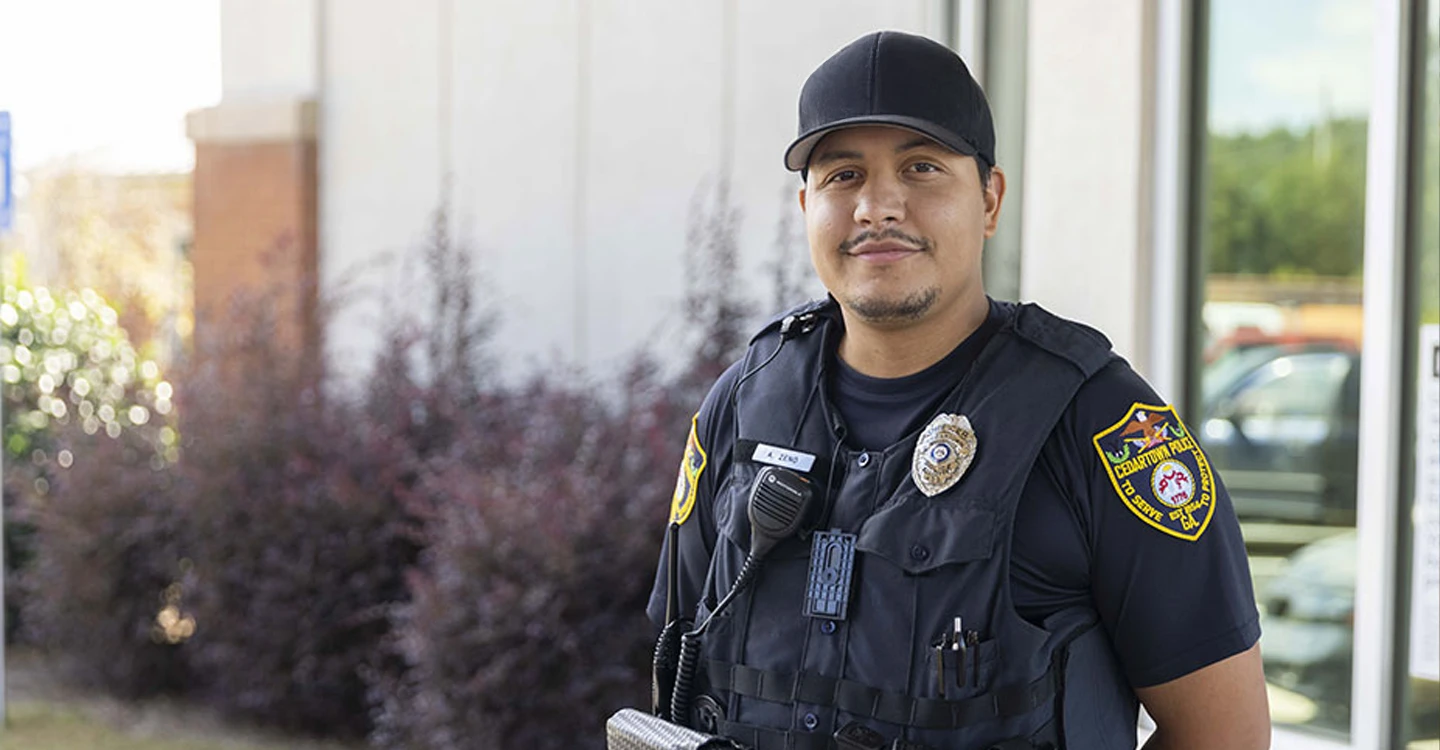Juan was lonely. He had been a patient in the Floyd health system several times over the course of 2020 for evaluations. His family knew something was wrong and desperately wanted help for him, but Juan's situation was a complicated one.
Juan is deaf. He communicates only through American Sign Language and written notes in English. His family speaks only Spanish. The inability to communicate was taking its toll. When schools and churches closed due to the COVID-19 pandemic, the already isolated young man became further isolated.
His attempts to vent his frustrations or communicate his symptoms were not fully understood. And while an interpreter was provided to him for clinical visits while he was hospitalized, there were many hours during the day when Juan had no way to communicate or interact with others. He was alone, yet surrounded by people, until he met Alex Zeno.
Alex was working as a security guard and regularly checked on Juan as he rounded. The more he observed him, the more he came to realize that one of Juan's greatest needs was someone to communicate with. He understood how hard it must have been for him. He couldn't see his friends. He was frustrated, alone.
Alex had an idea. He brought a paper bag and a soft-tipped marker and started a conversation. He wrote out questions, then gave the marker and bag to Juan to write his answers. The pair built a rapport. They found commonalities in their appreciation for Avengers movies, and Alex helped Juan pass the time by playing tic-tac-toe. Soon the paper they were using became messy and full. And, writing questions and waiting for written answers takes a lot longer than the spoken or signed word, so Alex asked Juan to teach him to sign.
The paper the pair used quickly filled with crude drawings of hand gestures. Before long, Alex had learned the sign language alphabet along with signs for commonly used words. He used his new-found skill to connect Juan to his care team. When Alex was working his shift, Juan would ask him for help in securing a snack, something to drink or when he needed to go to the restroom.
One day, a member of Juan's care team saw Alex signing with his patient and mentioned that he didn't realize he knew sign language. The security guard quickly explained that he was not fluent. His skills, he told the nurse, consisted only of what Juan had taught him or what he had learned online. The pair had developed a temporary solution that allowed the two of them to communicate.
Joy Henslee was among those who saw Alex and Juan converse. Theirs was not a “point-to-what-I-want-and-hope-you-can-understand-me deal," she said. Alex and the patient were carrying on actual conversations. He cared so much about communicating with a patient that he was willing to jump multiple hurdles to do so. The teammates who witnessed his extraordinary, heartwarming compassion learned a valuable lesson from Alex that day, she said.
Alex's patience, his knowledge of the importance of communication and his understanding of a teenager's mind helped him to see that this patient needed much more than a watchful eye. Juan needed a bridge builder, someone who could traverse a communication gap and give him a voice when he previously had none.
